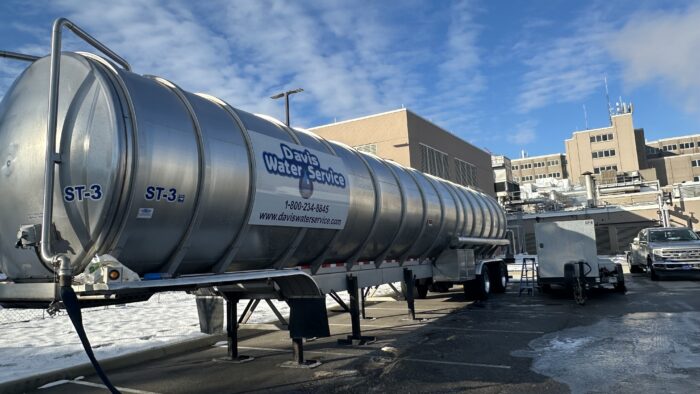
A water tank outside HCA’s Chippenham Hospital. Local area hospitals have received water shipments to support their operations during the water crisis in the Richmond region. (Courtesy HCA)
Few industries, it appears, are immune from Richmond’s weeklong water crisis.
As much of the region faces another day of boil water advisories, BizSense checked in with folks from all corners of the local business community to see how they’re staying afloat when clean, safe water is hard to come by.
Hospitals
While some local hospitals initially had to divert patients to other facilities in recent days, by yesterday afternoon that was no longer the case at Bon Secours and HCA facilities.
Bon Secours Chief Nursing Officer Cassie Lewis said signs pointed toward more regular operations on Thursday afternoon.
“Over the last 24 hours, there’s been marked improvement,” Lewis told BizSense. “We’re slowly getting back to more normal operations.”
By that time, the Bon Secours hospitals most affected by regional water issues – Richmond Community Hospital in the East End, St. Mary’s Hospital in western Henrico and Memorial Regional Medical Center in Mechanicsville – weren’t redirecting ambulances elsewhere.
Those hospitals went through periods of turning away patients because of water issues, with Richmond Community and Memorial Regional doing so earlier in the week and St. Mary’s diverting patients for part of Thursday morning.
All three hospitals were operating off potable water pumped into the facilities by on-site water tankers amid boil advisories and shortages. Clean water is key to the operation of a hospital for everything from sterilizing equipment to food preparation.
Elective surgeries at the Bon Secours hospitals resumed Thursday afternoon after being paused earlier in the week, Lewis said.
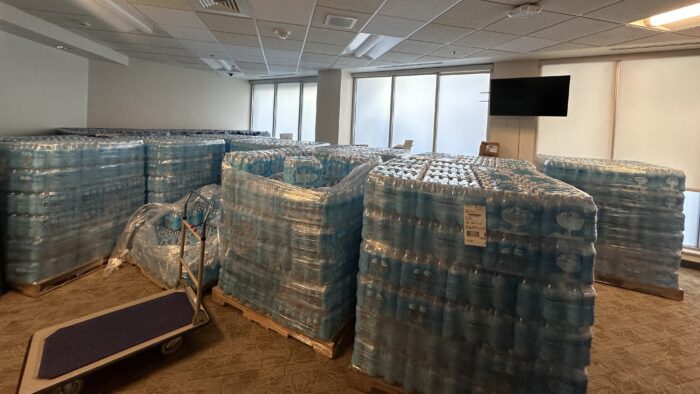
HCA’s local facilities have received shipments of bottled water from the company’s arms in Ohio and other markets. Pictured is bottled water at Chippenham Hospital. (Courtesy HCA)
HCA’s local hospitals were all open Thursday. The health system’s Hanover Emergency Center stopped diverting patients to other facilities by the afternoon, HCA spokesman Wes Hester said.
Retreat Doctors’ Hospital in the Fan had previously been diverting patients but had stopped by midweek, according to a Times-Dispatch report.
Retreat was fully operational but still experiencing “water and water pressure” issues, Hester said. Chippenham Hospital was experiencing similar water-related issues but was operational. Elective surgeries are taking place at Retreat and Chippenham.
The VCU Health Medical Center’s emergency department was accepting patients by yesterday afternoon, according to a VCU Health spokeswoman. The hospital had previously directed patients to other hospitals, according to the Times-Dispatch.
Major hospital operators weren’t the only healthcare organizations navigating the water shortage. Sheltering Arms Institute, which runs an inpatient rehabilitation hospital in Goochland and clinics throughout the region, also saw its operations disrupted but looked to be back on track.
Sheltering Arms hoped to reopen its clinics in eastern Henrico and near Scott’s Addition today (Friday) after closing them Tuesday because of the water issues, spokeswoman Jenny Lankford said.
The organization closed a clinic in Mechanicsville on Wednesday, but reopened it the following day. Lankford said the organization’s rehab hospital has been able to operate normally to date.
Hotels
In the hospitality industry, several city hotels were forced to lean on their suburban counterparts this week, with some sending guests out to the counties.
At The Jefferson Hotel, General Manager Joseph Longo said guests were informed of the water issues and offered lodging at other hotels, such as The Westin in Henrico and the Short Pump Hilton.
“We had guests that were certainly understanding, but many of them canceled,” Longo said. “We had to let them know that this is what was happening in the event that they were not aware of it, because a lot of our guests are coming from out of town.”
Longo said the biggest impacts to The Jefferson operationally were to its food and beverage services, requiring modifications with prepackaged food items and bottled water and beverages. With water coming back online as of Thursday, Longo said the hotel soon would be back to full operations.
“We will be 100% (on Friday),” he said.
Shamin Hotels, whose properties include the Short Pump Hilton, picked up some business at its hotels in the counties but also had to move guests from its city properties, CEO Neil Amin said Thursday.
“As you can imagine, when people came in and there was no water, they were scrambling to find different accommodations, even meetings and groups,” he said. “Obviously it’s a busy first week with the General Assembly just starting, so we accommodated some groups that were downtown in some of our other hotels across the region.”
Amin said the company bought additional bottled water and offered guests the ability to shower at a hotel with running water.
Amin said it was too early to know how much financial impact the water loss has had on Shamin, and Longo didn’t specify how many guests were relocated from The Jefferson or how much the water woes affected revenue there.
“The only positive out of this is the first week of January is not a busy week, so that helped us,” Longo said.
Live music
For Lucas Fritz, who runs live music venues the Broadberry and Richmond Music Hall, this week has at times reminded him of another public crisis, one that began nearly five years ago.
“It has been eerily similar to COVID in a bunch of ways, so it’s been giving me these flashbacks,” Fritz said of the days of the pandemic.
That feeling was mainly triggered by the fact that his group had to cancel a show Wednesday at Richmond Music Hall because of a lack of running water.
However, Fritz said the flashbacks have been short-lived as the city makes slow but steady progress toward normal water flow. Also making things easier was the fact that the crisis has occurred during one of the few quiet weeks of the year at the Broadberry. That venue, at 2729 W. Broad. St., by chance had no shows scheduled this week until today (Friday).
“Typically, January is a pretty slow time in the touring and music world,” Fritz said. “It’s cold and dreary and everybody is tired.”
Fritz said this week’s show, with artist Gorilla T, is a go, although the venue’s kitchen will still be boiling water to wash dishes and will be serving bottled water as opposed to its usual larger water dispensers for concertgoers to use.
Asked whether the water saga has dampened the mood for Friday’s show and might prevent folks from showing up, Fritz said signs point to the opposite.
“We’re getting messages from people asking if it’s still happening, so my guess is people want to get out of their houses and do something. We’re going to do everything we can to make sure they feel safe and comfortable,” he said.
Museums and art
For local museums and art spaces, it was a bit of a mixed bag as to how interrupted work was.
Both the Virginia Museum of Fine Arts and the American Civil War Museum remained closed Thursday. The Branch Museum of Architecture & Design was lucky to have been closed for guests through Jan. 24 for exhibition installation, but its museum offices were forced to remain closed through the week because of a lack of heat brought on by the water outage and old pipes in the building.
While the Valentine Museum had been closed to the public since Monday, it reopened Thursday with the return of water to its building, according to spokeswoman Christina Swanson.
“Our staff were getting stir-crazy so they’re glad to be back, even with this crisis still ongoing,” Swanson said Thursday afternoon.
The Valentine has water bottles available for guests visiting the museum.
Local nonprofit Studio Two Three, which offers community arts space to the public, has remained closed since the water outage as well. But the studio will reopen Friday at 11 a.m. for children’s movie screenings and art stations for parents to bring their children after a long, extended winter break as schools remain closed in Richmond and Henrico.
BizSense reporters Jackie DiBartolomeo, Jack Jacobs, Jonathan Spiers and Michael Schwartz contributed to this report.

A water tank outside HCA’s Chippenham Hospital. Local area hospitals have received water shipments to support their operations during the water crisis in the Richmond region. (Courtesy HCA)
Few industries, it appears, are immune from Richmond’s weeklong water crisis.
As much of the region faces another day of boil water advisories, BizSense checked in with folks from all corners of the local business community to see how they’re staying afloat when clean, safe water is hard to come by.
Hospitals
While some local hospitals initially had to divert patients to other facilities in recent days, by yesterday afternoon that was no longer the case at Bon Secours and HCA facilities.
Bon Secours Chief Nursing Officer Cassie Lewis said signs pointed toward more regular operations on Thursday afternoon.
“Over the last 24 hours, there’s been marked improvement,” Lewis told BizSense. “We’re slowly getting back to more normal operations.”
By that time, the Bon Secours hospitals most affected by regional water issues – Richmond Community Hospital in the East End, St. Mary’s Hospital in western Henrico and Memorial Regional Medical Center in Mechanicsville – weren’t redirecting ambulances elsewhere.
Those hospitals went through periods of turning away patients because of water issues, with Richmond Community and Memorial Regional doing so earlier in the week and St. Mary’s diverting patients for part of Thursday morning.
All three hospitals were operating off potable water pumped into the facilities by on-site water tankers amid boil advisories and shortages. Clean water is key to the operation of a hospital for everything from sterilizing equipment to food preparation.
Elective surgeries at the Bon Secours hospitals resumed Thursday afternoon after being paused earlier in the week, Lewis said.

HCA’s local facilities have received shipments of bottled water from the company’s arms in Ohio and other markets. Pictured is bottled water at Chippenham Hospital. (Courtesy HCA)
HCA’s local hospitals were all open Thursday. The health system’s Hanover Emergency Center stopped diverting patients to other facilities by the afternoon, HCA spokesman Wes Hester said.
Retreat Doctors’ Hospital in the Fan had previously been diverting patients but had stopped by midweek, according to a Times-Dispatch report.
Retreat was fully operational but still experiencing “water and water pressure” issues, Hester said. Chippenham Hospital was experiencing similar water-related issues but was operational. Elective surgeries are taking place at Retreat and Chippenham.
The VCU Health Medical Center’s emergency department was accepting patients by yesterday afternoon, according to a VCU Health spokeswoman. The hospital had previously directed patients to other hospitals, according to the Times-Dispatch.
Major hospital operators weren’t the only healthcare organizations navigating the water shortage. Sheltering Arms Institute, which runs an inpatient rehabilitation hospital in Goochland and clinics throughout the region, also saw its operations disrupted but looked to be back on track.
Sheltering Arms hoped to reopen its clinics in eastern Henrico and near Scott’s Addition today (Friday) after closing them Tuesday because of the water issues, spokeswoman Jenny Lankford said.
The organization closed a clinic in Mechanicsville on Wednesday, but reopened it the following day. Lankford said the organization’s rehab hospital has been able to operate normally to date.
Hotels
In the hospitality industry, several city hotels were forced to lean on their suburban counterparts this week, with some sending guests out to the counties.
At The Jefferson Hotel, General Manager Joseph Longo said guests were informed of the water issues and offered lodging at other hotels, such as The Westin in Henrico and the Short Pump Hilton.
“We had guests that were certainly understanding, but many of them canceled,” Longo said. “We had to let them know that this is what was happening in the event that they were not aware of it, because a lot of our guests are coming from out of town.”
Longo said the biggest impacts to The Jefferson operationally were to its food and beverage services, requiring modifications with prepackaged food items and bottled water and beverages. With water coming back online as of Thursday, Longo said the hotel soon would be back to full operations.
“We will be 100% (on Friday),” he said.
Shamin Hotels, whose properties include the Short Pump Hilton, picked up some business at its hotels in the counties but also had to move guests from its city properties, CEO Neil Amin said Thursday.
“As you can imagine, when people came in and there was no water, they were scrambling to find different accommodations, even meetings and groups,” he said. “Obviously it’s a busy first week with the General Assembly just starting, so we accommodated some groups that were downtown in some of our other hotels across the region.”
Amin said the company bought additional bottled water and offered guests the ability to shower at a hotel with running water.
Amin said it was too early to know how much financial impact the water loss has had on Shamin, and Longo didn’t specify how many guests were relocated from The Jefferson or how much the water woes affected revenue there.
“The only positive out of this is the first week of January is not a busy week, so that helped us,” Longo said.
Live music
For Lucas Fritz, who runs live music venues the Broadberry and Richmond Music Hall, this week has at times reminded him of another public crisis, one that began nearly five years ago.
“It has been eerily similar to COVID in a bunch of ways, so it’s been giving me these flashbacks,” Fritz said of the days of the pandemic.
That feeling was mainly triggered by the fact that his group had to cancel a show Wednesday at Richmond Music Hall because of a lack of running water.
However, Fritz said the flashbacks have been short-lived as the city makes slow but steady progress toward normal water flow. Also making things easier was the fact that the crisis has occurred during one of the few quiet weeks of the year at the Broadberry. That venue, at 2729 W. Broad. St., by chance had no shows scheduled this week until today (Friday).
“Typically, January is a pretty slow time in the touring and music world,” Fritz said. “It’s cold and dreary and everybody is tired.”
Fritz said this week’s show, with artist Gorilla T, is a go, although the venue’s kitchen will still be boiling water to wash dishes and will be serving bottled water as opposed to its usual larger water dispensers for concertgoers to use.
Asked whether the water saga has dampened the mood for Friday’s show and might prevent folks from showing up, Fritz said signs point to the opposite.
“We’re getting messages from people asking if it’s still happening, so my guess is people want to get out of their houses and do something. We’re going to do everything we can to make sure they feel safe and comfortable,” he said.
Museums and art
For local museums and art spaces, it was a bit of a mixed bag as to how interrupted work was.
Both the Virginia Museum of Fine Arts and the American Civil War Museum remained closed Thursday. The Branch Museum of Architecture & Design was lucky to have been closed for guests through Jan. 24 for exhibition installation, but its museum offices were forced to remain closed through the week because of a lack of heat brought on by the water outage and old pipes in the building.
While the Valentine Museum had been closed to the public since Monday, it reopened Thursday with the return of water to its building, according to spokeswoman Christina Swanson.
“Our staff were getting stir-crazy so they’re glad to be back, even with this crisis still ongoing,” Swanson said Thursday afternoon.
The Valentine has water bottles available for guests visiting the museum.
Local nonprofit Studio Two Three, which offers community arts space to the public, has remained closed since the water outage as well. But the studio will reopen Friday at 11 a.m. for children’s movie screenings and art stations for parents to bring their children after a long, extended winter break as schools remain closed in Richmond and Henrico.
BizSense reporters Jackie DiBartolomeo, Jack Jacobs, Jonathan Spiers and Michael Schwartz contributed to this report.



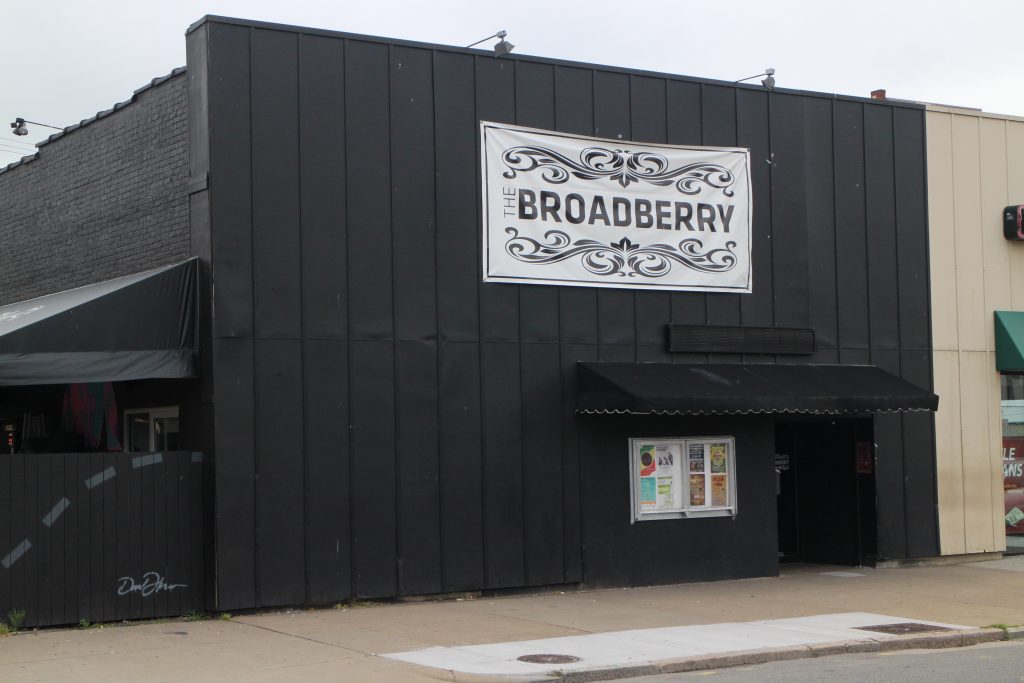
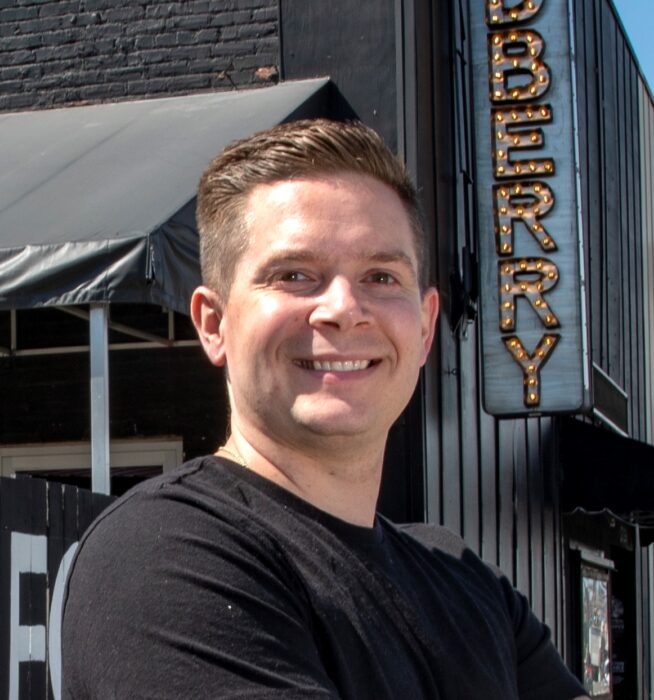
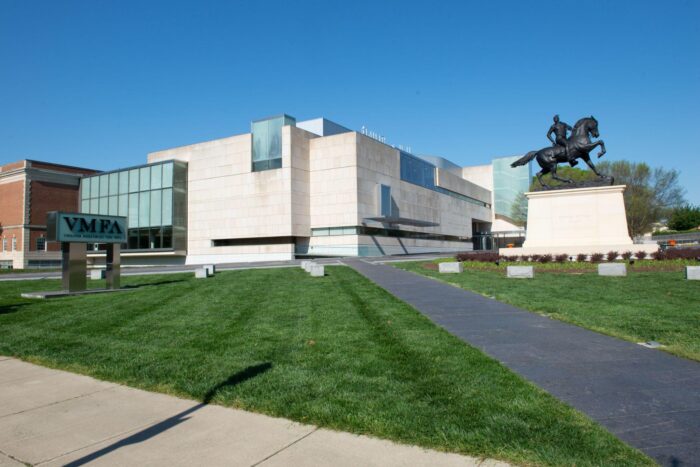


In today’s Richmond Times Dispatch it was reported that the City was made aware of the deficiencies at the water treatment plant during the past few years. In my opinion, any surplus money that the City of Richmond currently has should be used to replace the obsolete pumps and other equipment that has been cited by the EPA and the Commonwealth. Water and electricity are two top priorities of life in the modern world!
Yes all that is fine. However the real issue is the City’s continued failure to accrue funds for ongoing and future maintenance. We have seen this problem in maintenance for schools, the sewage system and the storm water problems in the past. Now it is the water system. As the fire problems in LA have shown us, failure to plan and implement strategies for infrastructure related issues rather than react to them will ensure continued disasters.
This is a historic level disaster for our city and it’s complete incompetence of the former administration and the current one. The people responsible should be embarrassed and should either be fired, resign or not run for political office.
I agree Joshua, but they will not be. Richmond is a one party city now and without the competing interests of two political parties, Richmond is the next Petersburg, once one of the most industrious and wealthy cities in the South. you will keep getting problems without accountability. Henrico and Chesterfield will continue to become stronger.
I do give the new mayor a chance,he’s really been thrown into a rats nest ..